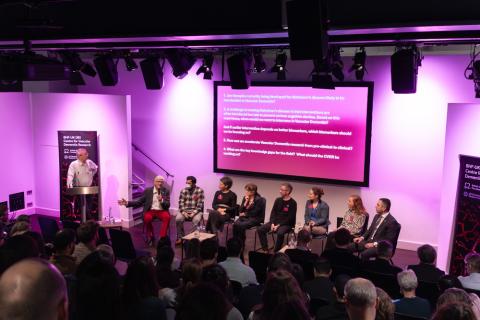Latest from the UK DRI



Dementia: The greatest health challenge of our time
In our ageing society, we face a future where one in two of us could encounter the challenges of dementia in our lifetime, whether supporting a loved one, facing it ourselves or both.
For people living with dementia and their families, the complexity of these brain conditions has meant years of waiting - but now, with new knowledge and scientific innovation, the UK Dementia Research Institute is opening doors to treatments that were once thought impossible.
people in the UK are projected to be living with dementia by 2040

UK DRI Director Prof Siddharthan Chandran in clinic in Edinburgh
Advancing our understanding of neurodegeneration
- Alzheimer’s disease
- Frontotemporal dementia
- Huntington’s disease
- Lewy body dementia
- Mild cognitive impairment
- Motor neuron disease / ALS
- Parkinson’s
- Rare conditions (e.g. PSP)
- Vascular dementia

Research: transforming the lives of people affected by dementia

UK DRI researchers working on stem cells
to gain greater insight into motor neuron disease
driving research breakthroughs
hosted across leading UK universities
with a single mission to discover, develop and deliver solutions

Funders
The UK DRI was established in 2017 by our principal funder the Medical Research Council, in partnership with Alzheimer's Society and Alzheimer’s Research UK. Since then we have established a number of partnerships to drive the groundbreaking research taking place at the Institute, aiming to transform the lives of people affected by dementia and other neurodegenerative conditions.






